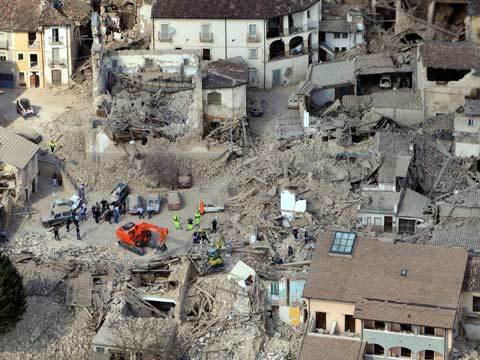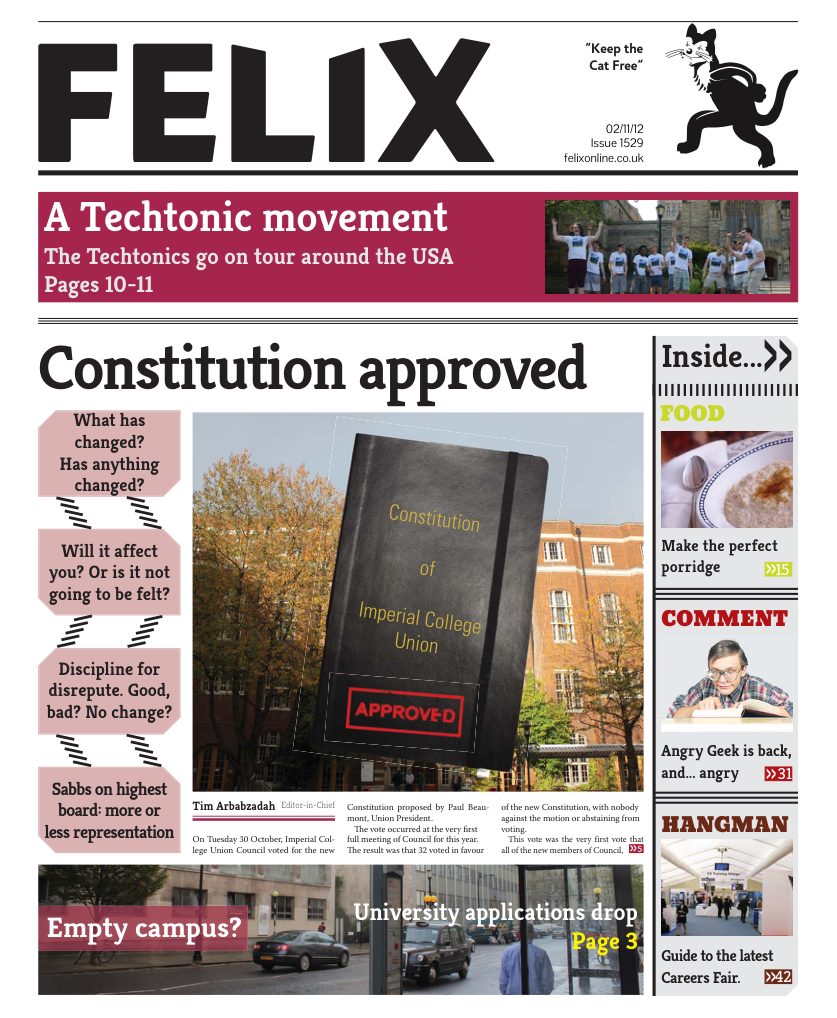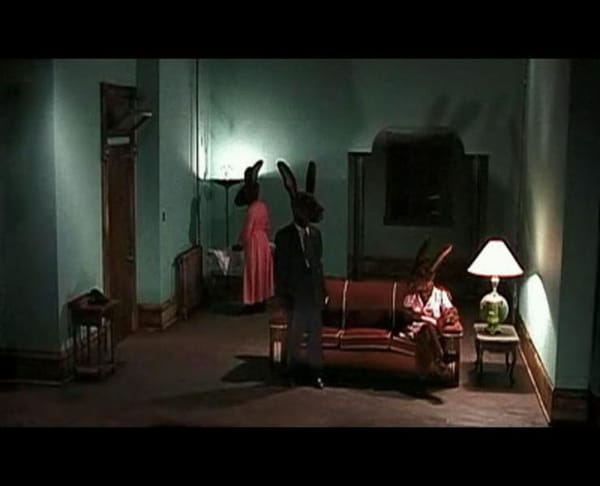Italy’s new Illuminati
(Yes, it’s that guy from University Challenge!)

By now, you might’ve heard the news about the Italian scientists that were found guilty of failing to warn the populace of the earthquake that devastated the region of Abruzzo three years ago. The Grandi Rischi (Great Risks) is a commission of experts on calamities whose purpose is to monitor the likelihood of such catastrophes happening, and to advise on how to avoid them or mitigate their effects; according to the judges, they failed to predict the earthquake and therefore are at least partly responsible for the over 300 deaths, thousands of wounded and tens of thousands of evacuees.
This sets an extremely dangerous precedent, and indicates a troubling attitude towards science. Earthquakes, as events, are very hard to foretell and in general almost no scientific prediction can be
People of Abruzzo cheered at the court’s decision, claiming that justice had been done, when in fact it was a mockery and a farce
made with 100% confidence; to require absolute certainty in this matter is preposterous. But science is seen as “those nerds in lab coats who always know things.” It is almost as if omniscience is the norm, and whoever claims to be scientist must be prepared to be always right or face the consequences; almost as if science is a dark art from which to conjure answers. Who, in the scientific community, can afford no margin of error whatsoever? Who can even get a flawless record in predicting such matters?
Now, we must be fair. Italy is no stranger to corruption, and there are chilling tales and records of phone calls documenting how the boss of the Protezione Civile (Civil Protection) told the committee to downplay the risk of earthquake to prevent panic in the population, and that other experts had predicted the earthquake and were ignored. However, while this is a shameful example of science always coming second to politics, seismologists from America, Japan and Switzerland have reacted to the news of the trial by claiming that the data was contradictory and that, in the same position, they would’ve also given similar advice.
Many are now commenting that it would’ve been better for the scientists to err on the side of caution and warn the population anyway; but Italy is a highly seismic zone: does this mean that we should be constantly crying wolf? It has been extensively determined that, with current methods, it is impossible to predict with sufficient accuracy the occurrence of an earthquake; to treat every possible hint as an
Now, we must be fair. Italy is no stranger to corruption, and there are chilling tales and records of phone calls documenting how the boss of the Protezione Civile (Civil Protection) told the committee to downplay the risk of earthquake to prevent panic in the population
emergency might create alarmism and cheapen the value of warnings. High-risk zones should be equipped to deal with such events, but to demand unerring precision is irresponsible. The problem is, fundamentally, one of scientific education, and the need to give someone the blame for the catastrophe. This combination led the public to perceive that experts could’ve predicted the earthquake but didn’t, and hence must be punished and tried. People of Abruzzo cheered at the court’s decision, claiming that justice had been done, when in fact it was a mockery and a farce: a mockery, because it grossly misinterprets how the scientific process works, and a farce, because it was little more than a search for scapegoats.
... seismologists from America, Japan and Switzerland have reacted to the news of the trial by claiming that the data was contradictory and that, in the same position, they would’ve also given similar advice
If the committee actually bowed to political pressures and reassured that there was little risk of a calamity without doing a more extensive analysis, it is troubling and it should be addressed more fully; but they never discounted the possibility of an earthquake. People choose to ignore this because it is easier to see the question as one of people who didn’t do their job, because their job isn’t actually understood, and because it is more reassuring, in a perverse way, to think that it was due to human error rather than a random and unpredictable whim of nature.
The adage comes to mind, that any sufficiently advanced technology is indistinguishable from magic, and that’s what scientists are seen as: sorcerers who deal with incomprehensible arcane matters. And like them they are burnt at the (metaphorical) stake for things that the public does not understand.







